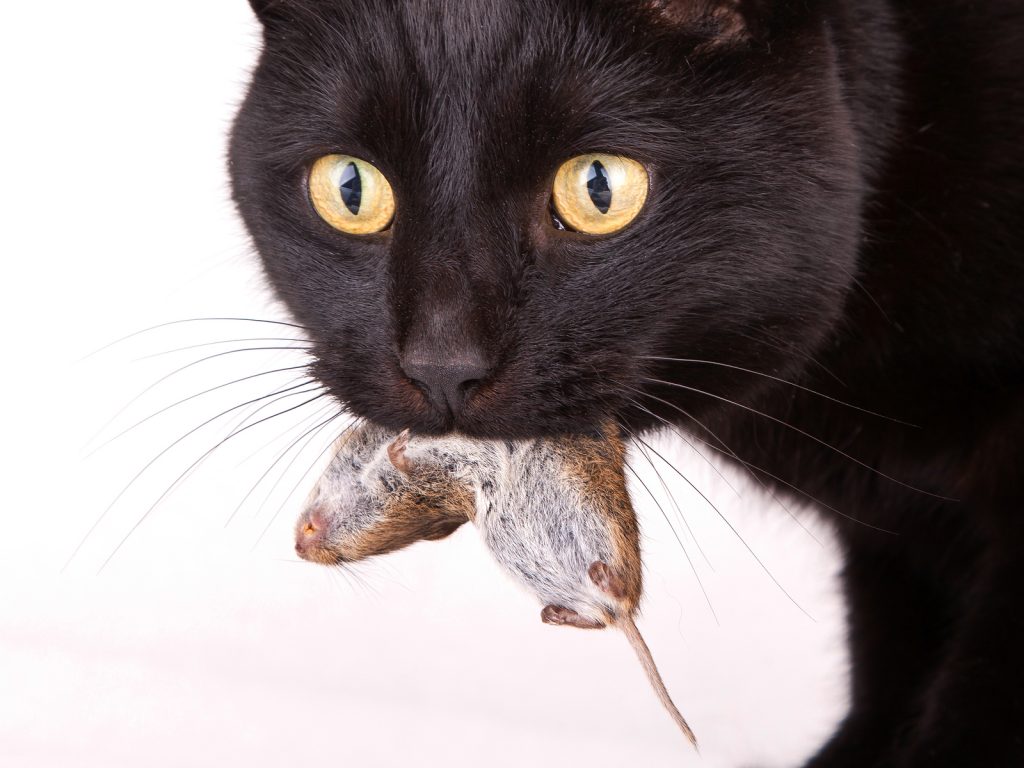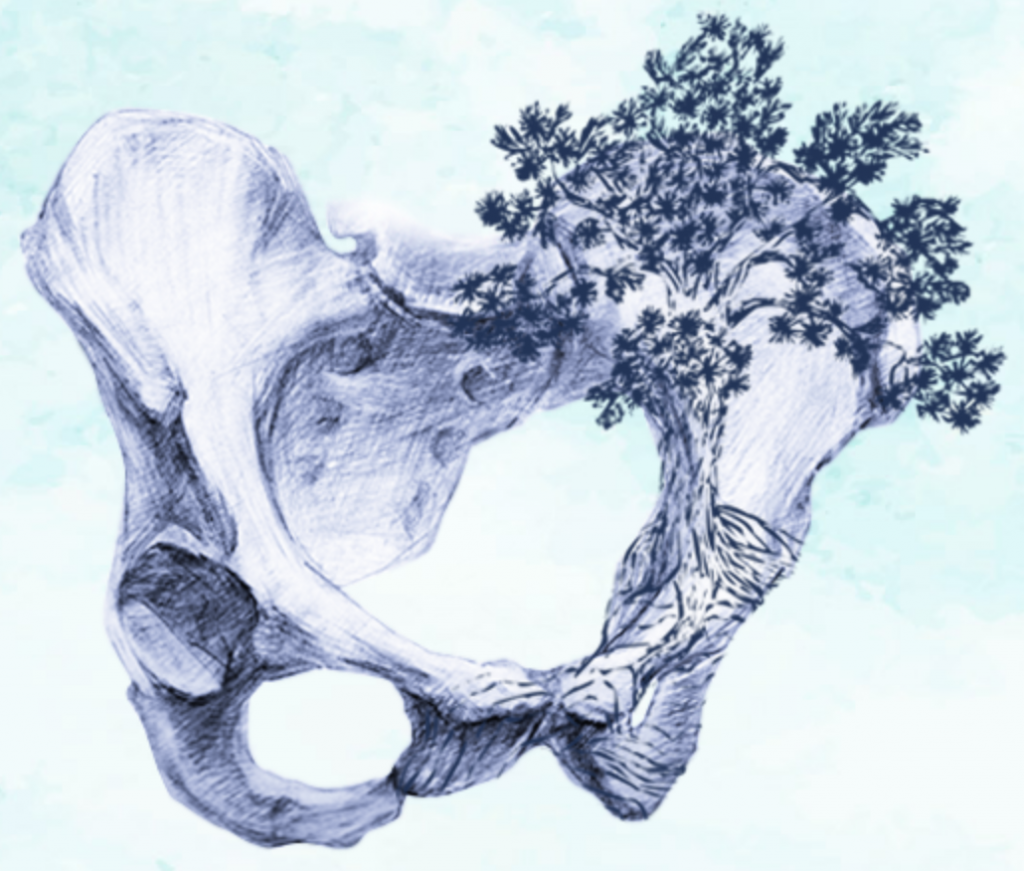Trauma Training Tip
We commonly think of Fight, Flight, and Freeze as trauma responses. There is one more that is equally helpful in the human response to threat – and that is the Feign response. It’s a lot about the Fire Element – and a little about the Wood.

A mouse caught between the jaws of a cat may choose to “feign” death. The cat will be less interested in eating a potentially rotten piece of mouse and may drop the mouse, leaving it to scurry to safety in its mouse hole.
Sometimes the best thing we humans can do to ensure our survival is to feign a posture of appeasement or acquiescence to an abuser to “buy time” until we can escape. The tragic thing is that while feigning can soothe anxiety and help us feel “safer” in the moment, if we become habituated to merging with the wishes, needs, and demands of others – and especially others who may not have our well-being front and center – it ultimately will silence our voice. Our capacity to anchor decisions in our own interoceptive knowing about who to trust, what our needs and desires are, how we know our essential value, and engage in actions that support our self-determination will become compromised.
Any abusive setting – could be childhood abuse or domestic violence as well as those culturally institutionalized “inescapable attacks” and “micro”-aggressions experienced by people who are BIPOC, LGBTQI, women, non-English speakers, immigrants, differently abled people, and too many others – may result in growing up with the sense that our survival is linked to appeasing those who represent white supremacy, patriarchy, or the power structures inherent in capitalism and highly orthodox or rigid religious settings.
These social structures require the suppression of the fight or flight responses of those in other “tribes” by making members of marginalized tribes feel invisible, undervalued, and impotent – which can lead to over-reliance on the feign response in these survivors.

There is no shame in having become habituated to any of the biologically dictated responses to threat – there is space in our world for the wolf (fight), the deer (flight), the rabbit (freeze), and the mouse (feigning death). Each of these animals represent various forms of protection that have helped survivors live through abusive and sometimes dangerous circumstances. However, like each of these habituated responses to threat, feigning has a downside.
When feigning becomes habituated, we work so very hard to please others, that we may find ourselves in abusive relationships with no space for our own needs. We may come to value others over ourselves, and find it difficult to access our interoceptive awareness. We may have an exaggerated sense of responsibility for the well-being of others.
Clinicians need to help normalize the choice to have pretended, ingratiated, or bargained with a perpetrator, as a clever and creative approach to defusing threat and supporting survival. It is critical to transforming the shame, guilt, or contraction such survivors may feel. Helping survivors find such states in their tissues and simply be with them in the context of safety and relationship with you can help unwind their contracting imprint.
Can your feign-type clients experience their time with you as a place to not pretend, please, acquiesce, bargain, ingratiate, or otherwise leave interoceptive awareness of their own needs, desires, and pleasures behind? Can they find and make use of their mobilization response/Wood element to defend and protect themselves? Can they experience membership in a tribe of people who love and welcome them as they are?
Alaine’s Two Cents
This article in Science Magazine explores the relationship between the concept of interoception – our capacity to be aware of internal states – and the function of the Ventral Vagus nerve.
Ventral Vagal functions mirror Chinese medicine’s understanding of the Shen, or the Heart Spirit. The more our Heart finds equanimity and co-regulation with others – the more accessible our internal awareness will be. Interoception is a life-giving sensation – it tells us when we are hungry, cold, hot, thirsty, or tired – all the things we need to know in order to guide our body through our days with ease.
Take time to tickle your Ventral Vagus with some delicious hugs, engaging smiles, and engagement with others. Cultivating our Shen will expand our interoceptive awareness and help make our lives richer and easier to navigate!
Check This Out!
Yael Saslove Shani and Iris Abarbanel have brought together a vast exploration of the multidimensionality of the pelvis, on their new website.

They describe Pelvicademy® as “a journey of researching the pelvis, including a variety of schools, perspectives, and specialists, with the goal of deepening and creating a multidimensional understanding of the pelvis.”
They feature my work in a two-part series: Using The Diaphragm System to Restore Balance and Regulation in the Pelvic Floor: An East-meets-West Approach on their site. It’s available for purchase here.
Let me know what you think!
Clinical Curiosity
Where is your clinical curiosity carrying you?
Send me a question or two and I will explore them with readers in this corner next month.
Q.
My patient’s husband is suffering from frontal lobe dementia. He’s become a different person! He’s violent with caregivers and other patients in the memory unit where he lives. He doesn’t know his wife and he even goes into other resident’s rooms and urinates in the corner! How do you understand this?
A.
So tragic. I’m so sorry. When the frontal lobe is losing its function, we can see the powerful role of the ventral vagus nerve. Such a special nerve. It both enervates the frontal lobe and has a profound impact on Heart function. It supports our capacity for friendships and intimate relationships, helps us resolve conflicts in non-violent ways, and gives us the capacity to inhibit anti-social impulses.
We all sometimes feel like throwing sand in our play-mates faces – but we learned as a child that we risk losing our friend if we don’t inhibit those kinds of impulses. Our parents taught us the rules of our tribe in order to protect our membership in our tribe. A healthy ventral vagus includes just enough shame – which creates a powerful contraction of the heart – to obey the rules of our social group. We can’t survive without each other and we need just the right amount of healthy shame to suppress such impulses. Psychopaths are people who didn’t learn how to manage such defensive impulses. Your friend’s husband is not a psychopath – but he does illuminate the powerful and necessary functions of the ventral vagus nerve – in its absence.
The kidney/adrenal hold may help this man to feel less threatened and more able to access the functions of his ventral vagus that remain available to him.
All good wishes. Please offer your friend all the love and support you can.
